You want to know what living in Sydney is really like. In this blog post, I’ll give you the lowdown on finding a job, finding an apartment and how expensive it really is to live in Sydney.
Sydney has been my home for four years, and what a beautiful life I’ve been lucky to live here. I mean, where else can you get stunning beaches a short drive (or walk) from the city? What I really love about Sydney is how laid-back it is (I mean, it’s almost horizontal. It’s that laid-back). Living in Sydney is unlike anywhere else I’ve ever lived (I’m originally from Cork Ireland).
So, read on how you can make your dream of moving to Sydney a reality!
Is Sydney, Australia a Good Place to Live?
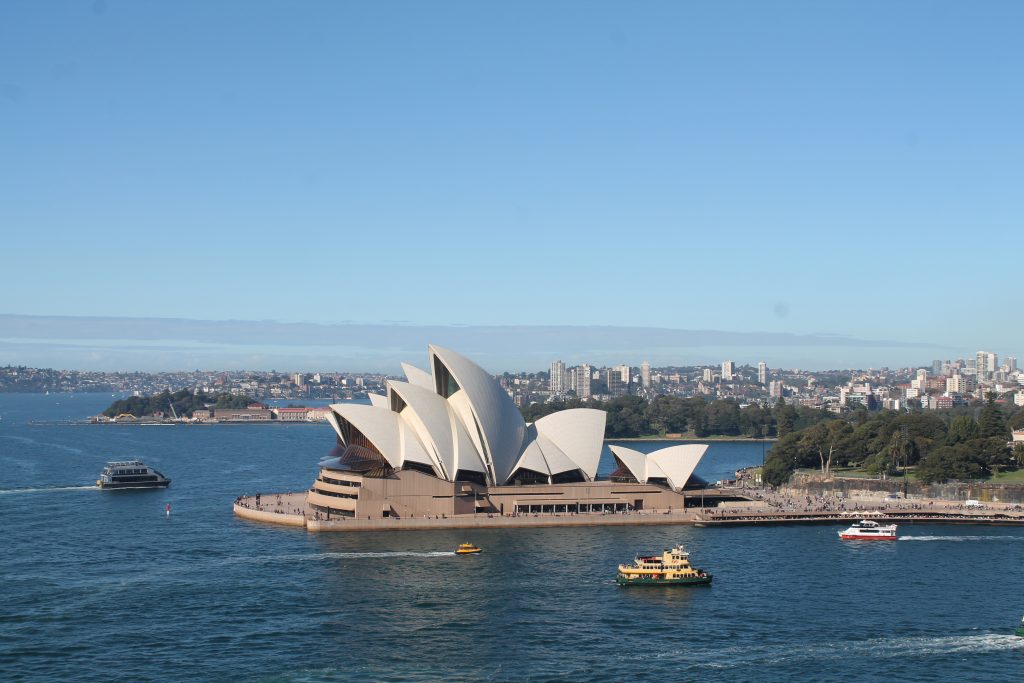
Sydney is without a doubt one of the most beautiful cities in the world – I mean, not only is it home to the iconic Opera House and the Harbour Bridge, but the city is filled with quirky, colorful areas like Potts Point, Surry Hills, and Newtown. For such a large city (Sydney has a population of 5.3 million), it’s pretty safe; in fact, Sydney has a very low crime rate, and in my four years living here, I never felt unsafe walking at night or getting public transport on my own.
The lifestyle you can have when living in Sydney is second to none; it’s very relaxed here, and of course, the excellent climate and beaches add to the appeal. However, it is expensive to live in Sydney, so, of course, earning a decent wage is important to truly enjoy life here. I mean in one day in Sydney you can spend a lot (it’s expensive to eat out and drink at bars). Also rent can be very expensive, as I’ll explain later.
What Salary Do You Need to Live in Sydney?
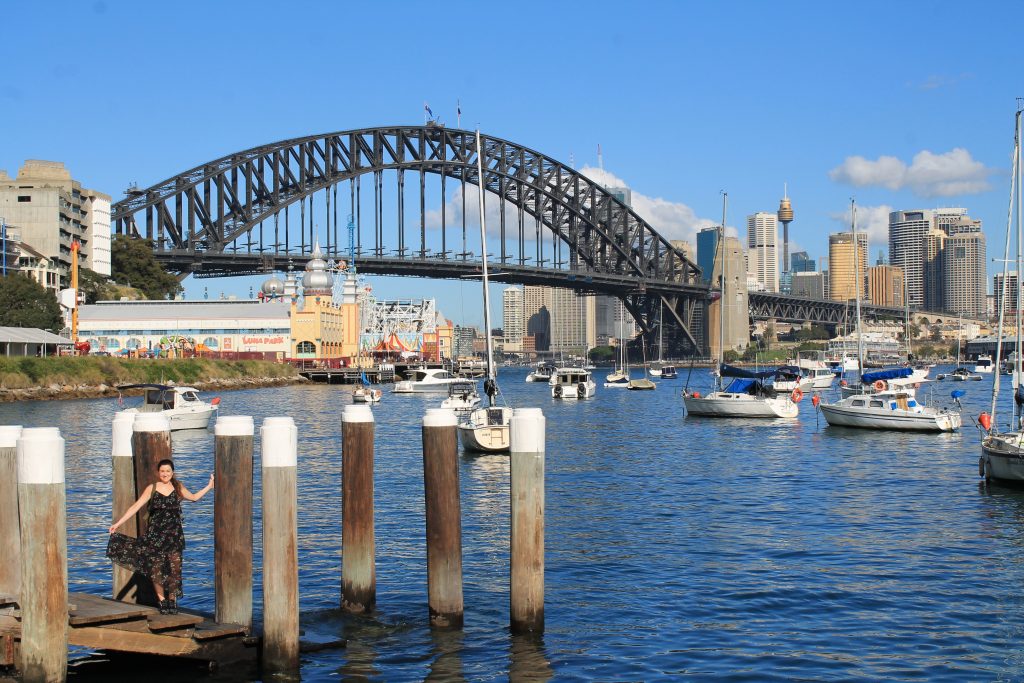
I would say that you would need to earn a minimum salary of $80,000 AUD to live in Sydney comfortably.
Sydney is an expensive city to move to! A person’s average expense for one month in Sydney is $4,100 AUD, and that includes rent, food, and public transport. The average person’s salary in Sydney is $92,000 AUD per year or $44 AUD per hour. Still, moving to Australia with a decent chunk of savings is important – as it’s highly unlikely you’ll earn the average salary for the first couple of months.
Rent, as you can imagine, is the most expensive outgoing cost for most people, with the average one-bedroom apartment in the CBD going for $3,300 AUD per month; of course, the further away you go from the city, the cheaper rent will become. The average rent for a one-bedroom outside the CBD is $2,400 AUD. Some of the cheapest neighborhoods to rent in Sydney include Cabramatta, Blacktown, and Campbelltown. Although less desirable than, say, Bondi or the Northern Beaches, it may be necessary to rent in these cheaper areas in the beginning.
Buying groceries in Sydney, I found is surprisingly reasonable, provided you shop in the larger supermarkets like Woolworths, Coles, and Aldi. Is worth noting to only buy fruit & veg in season as you will be paying way above the odds for certain items out of season. For example, one time I paid $5 AUD for a capsicum (pepper) because I was desperate.
Related Read: Check out my guide to spending a fun weekend in Sydney!
What Do I Need to Know Before Moving to Sydney?
For the average person, you will need to apply for a work visa before moving to Sydney. If you are lucky enough to have Australian ancestry or are married to an Australian, then the process will be much easier.
But, a Working Holiday Visa is the easiest way to gain entry to Australia, provided you meet certain requirements –
- Aged between 18-30, unless you’re from Canada, Ireland, or France, in which case you can apply until the age of 35
- Have no dependent children
- Must hold a passport from one of these countries
If you are unable to apply for a Working Holiday Visa, here’s a list of all other Visa options for Australia
For any of you who have been following my travels for a while, you will know that I love the freedom a Working Holiday Visa offers. My husband & I have been traveling together for 10 years. And we have also lived and worked in Queenstown, and Whistler in Canada, under the Working Holiday Scheme.
Luckily for us, we are from Ireland and England, and both passports make it relatively easy to get a Working Holiday Visa for Australia.

How to get a Working Holiday Visa for Australia
I think everyone knows someone who’s done a Working Holiday Visa in Australia. This visa is called the Subclass 417 visa, and it’s the most popular way for young people (those aged from 18-30 or 18-35 for certain nationalities) to move to Australia.
Step one –
It’s pretty easy to start the application process; you can start applying online here. The first step is to set up an IMMI account (see photo below), and the next page asks you to set some security questions and a password.
Step two –
- Et voila, IMMI account set-up. You then login to your IMMI account and start the application process for your Working Holiday Visa. It takes about 15-20 minutes to fill out the application.
- The visa costs $495 AUD. This does not cover other costs, such as the costs of health assessments, police certificates, or any other certificates or tests you may need.
FYI – If you’re a Nurse or plan on working in Social Care or with children, you will need to do a health assessment. Find out more about working as a Nurse in Australia here.
Step three –
- It can take anywhere between 11 – 32 days to process the visa, according to the official Australian Government website
- Important note – On this visa, you can work for any one employer for a maximum of 6 months; there are exceptions to this rule, however.
- Also, be aware that at the application stage, you will need to prove that you have “sufficient funds”. You must provide a bank statement as proof you have enough money to support yourself in Australia ($5,000 AUD). You may also be asked for this bank statement when you enter Australia, so ensure you have a copy of a recent bank statement proving this upon entry.
Is it Hard to Get a Job in Sydney?
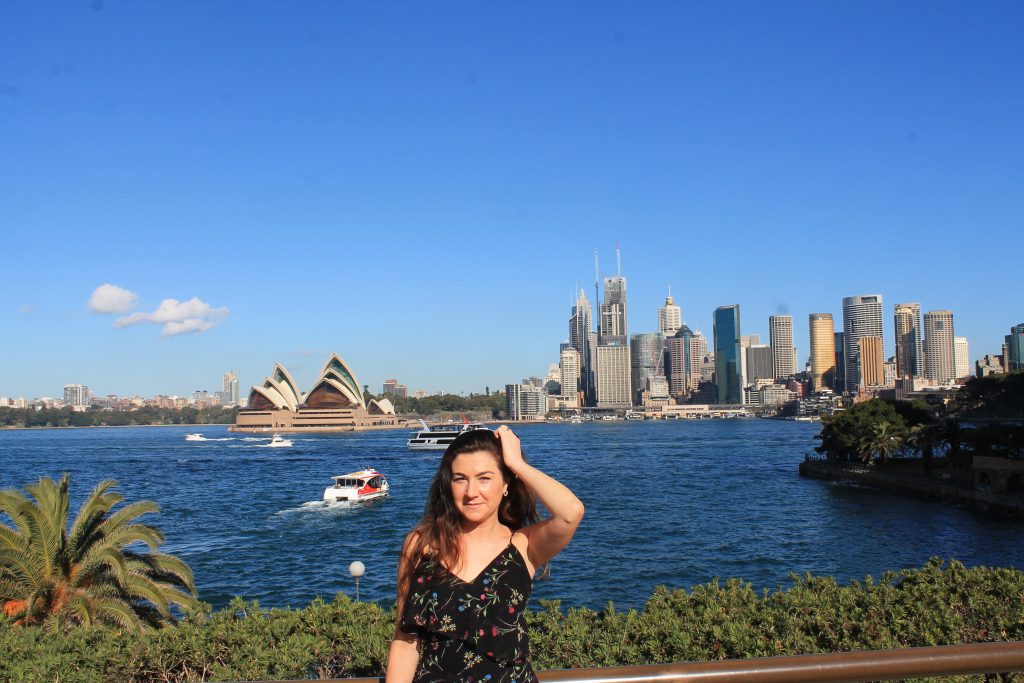
Let me start off by saying that if you decide to move to Australia you’ll notice that the work-life balance here is amazing. With an average of 5 weeks annual leave, 10 paid sick days and the pay is high. Minimum wage here is over $23 AUD per hour. Australian employers will even pay you for your pension (it’s called superannuation in Australia). And at 9% of your salary, that can add up to a lot of money. Which you can claim back when you leave.
It’s easy to find a job in Sydney even a few days after arriving (especially if you sign up with a Recruitment Agency when you land). You may not get your dream job first, but it’s important to get on the job ladder because once Australian employers see relevant local experience, you’re instantly more ‘hireable’. For example, I worked in a pharmacy in Rose Bay for my first few months, living in Sydney before finding my “dream job” in event production.
FYI – in order to work and get paid, you need a Tax File Number or TFN. Get this in your first few days you can see more info about the TFN here)
One of the best websites for job searching in Sydney is Seek.
Is it Easy to Rent in Sydney?

Rent is expensive and hard to come by in Sydney. Renting a room may be the way to go to begin with, especially if you want to live near the city, try – flatmates.com.au or gumtree for rooms to rent.
Alternatively, move out to cheaper neighborhoods like Cabramatta or Blacktown if you want your own place but don’t have a big budget. One-bedroom apartments in these areas typically average at $1,600 AUD per month. The most desirable areas to live in Sydney include Bondi, Surry Hills, Balmain, and the Northern Beaches (areas like Manly or Mosman) – which are home to the best beaches in Sydney. In these areas expect to pay around $3,000 AUD per month for a one-bedroom apartment.
Sign up with letting agents like McGrath and Raine & Horne early so that you get notified early of any rental properties. Other good places to search for a place to rent in Sydney are on Domain and RealEstate.com.au
Because the competition is fierce, be sure to come prepared for a rental viewing in Sydney. The documents you should have at every rental viewing include:
- A form of I.D like your driver’s license, passport, and your PPSN (Personal Public Service Number)
- References from past landlords
- A current work reference
- A current payslip or bank statement that shows your income
We were lucky enough to find an apartment rental (in North Bondi) within our first 3 days in Sydney as we were really prepared with all the documentation listed above. And had been searching for appropriate rentals before we landed.
If you’re moving to Sydney from another state, then, it’s a good idea to hire local home movers to move all your stuff (furniture, boxes, etc.) safely. We used a home moving service when we lived in Canada and wouldn’t hesitate to use it again, as it made moving our belongings stress-free.
Important information once you’ve arrived in Sydney
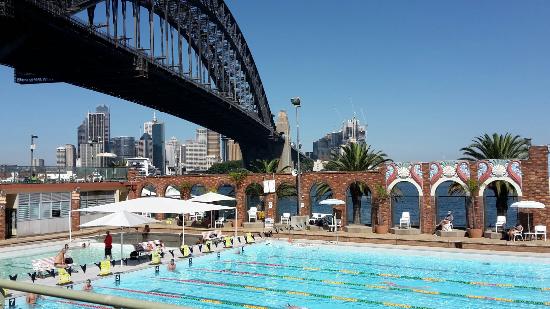
- Apply for a TFN – I will advise you to apply for your TFN as soon as you arrive in Sydney, as it can take up to 28 days to receive your number. You will need a TFN to legally work in Australia.
- Set up an Australian bank account – now, some of the bigger banks in Australia, such as Commonwealth (the bank I used), ANZ, Westpac, and NAB, have the option to set up an account with them while you’re still in your home country. If you apply for your account in advance, you will simply just need to collect your bank card from the bank when you arrive in Sydney. If you wish to set up your bank account in-person, then you will need a form of ID and a proof of address.
- Buy an Opal Card – this is what you’ll use on public transport in Sydney. You can buy this at a newsagent or supermarket and top up via the Opal app.
- Get a VPN – After a few weeks living in Sydney I purchased a VeePN as I was working a lot from my laptop. It gave me peace of mind and protected me from hackers, and it also meant I was able to access my favorite content from home easily.
Best short-term apartment rentals in Sydney
We recommend (if your budget allows) renting a cheap short-term apartment whilst you look for suitable long-term housing – here’s a list of some apartments we recommend (they’re all rated a 9/10 or above) –
Miss Baker’s Boutique Accommodation Bondi Beach – Located a couple of blocks back from the world-famous Bondi Beach, this studio apartment with a balcony is a brilliant option. The studio comes with a kitchenette, air conditioning, a flat-screen TV, and access to a communal garden. Rates average $260 AUD per night.
Modern Apartment in Chippendale – This stylish apartment in the heart of the bustling Broadway district is just over a kilometer from Central Station. The one-bedroom apartment includes a fully-equipped kitchen, air-conditioning, a flat-screen TV, and a washing machine! Expect to pay around $298 AUD per night here.
Two-bedroom in Olympic Park – Set in quiet Olympic Park, around a 15-minute drive from Sydney CBD – this two-bedroom apartment is great value for money (around $230 AUD per night). It includes a balcony, free private parking, a washing machine air-con, and a fully-equipped kitchen.
Thanks for reading!
Have you ever considered living in Sydney or anywhere else in Australia? I’d love to hear about it in the comment section below!
If you’re interested in applying for a Working Holiday Visa to New Zealand or Canada, read all my detailed instructions here!
Before you go! If you enjoyed this guide to living in Sydney! You may also enjoy reading some of my other most popular blog posts, including –
3 Days in Sydney With Kids (Fun Long Weekend Sydney Itinerary)
Which whale watching tour in Sydney should I choose?
I’m 34 and I still don’t have a clue what I’m doing
What they don’t tell you about moving home after living abroad
PIN THIS POST!

Last Updated on December 12, 2024 by snaphappytravel
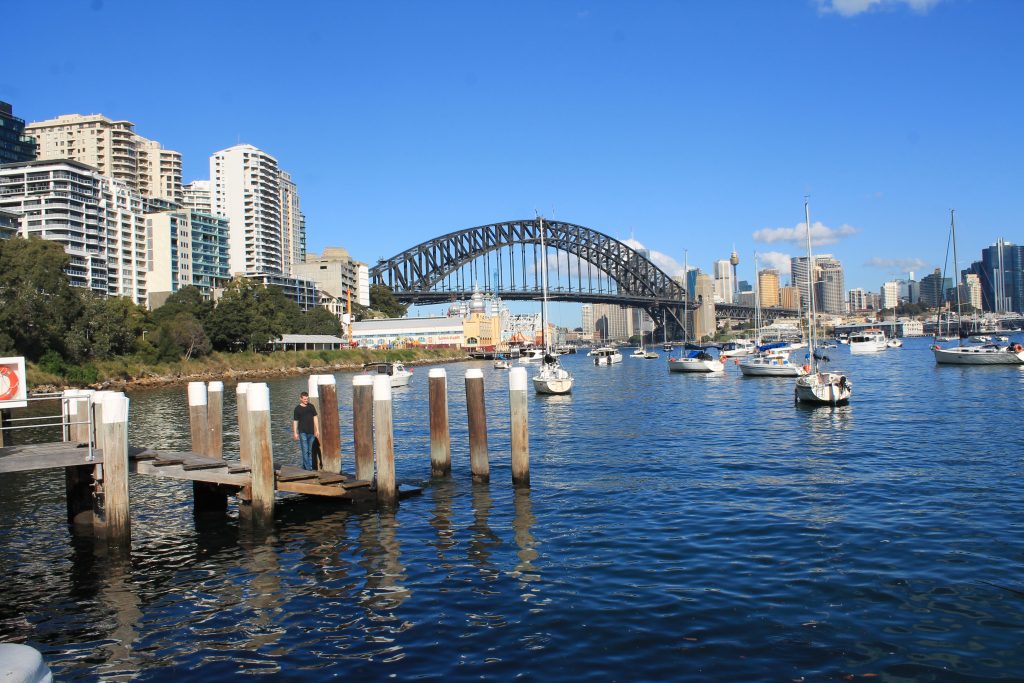

I’ve enjoyed reading this! Thanks for sharing 🙂
Reply
Such a lovely idea about the wonderful information on this blog thanks for sharing this amazing article and helping us for this information
Reply
this is so interesting and amazing article . i really love to read articles in free time. thanks for sharing this amazing article about living in Sydney.
Reply
Having lived in Sydney until my mid-twenties and continuing to visit regularly, I was interested to read what you had to say. I don’t know why, but I was surprised by your accuracy; you told it like it is. You have here a great resource for anyone thinking of moving to Sydney.
Reply
I’ve enjoyed reading about your experiences in Sydney! It’s my hometown & yes it’s a great place to live. After travelling overseas to many different countries I’ve decided that Sydney is one of the best places in the world to live…but then I could be biased.
Reply